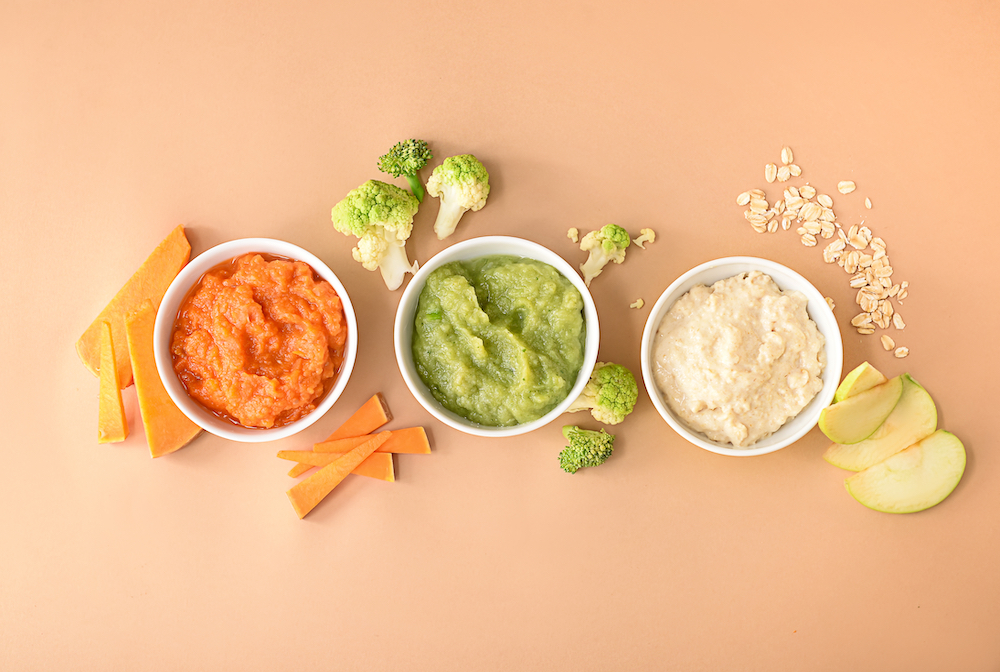Hearing about heavy metals in baby food can leave many parents worried and raise many questions and concerns. Heavy metals pose a risk of toxic exposure to children and can harm the brain, leading to problems with learning, cognition, and behavior. Since metals are found in nature and released into the environment, they can get into food from manufacturing and packaging. Common metals found in food include arsenic, lead, cadmium, and mercury. There are many steps parents and caregivers can take to reduce the risk of toxic exposure in their child’s diet.
To start, it’s important to serve your baby a well-balanced diet with fruits, vegetables, grains, and lean protein. When your child consumes a diet rich in essential nutrients, their risk of exposure to toxic metals and harmful contaminants is reduced. Make sure to read the labels for baby food and pay attention to the list of ingredients to offer a variety of foods and nutrients.
When it comes to serving grains, it’s best to offer different types and change them up. Rice usually absorbs more arsenic than other crops, so you’ll want to add other kinds of grains to your child’s diet such as oats, quinoa, couscous, and multi-grain cereals. To help lower the arsenic levels in rice, rinse the rice before cooking if you’re preparing it from scratch.
Avoid giving your baby any fruit juice as it can contain concerning levels of heavy metals. Fruit juice is also not recommended for children under age 2 as it has a lot of sugar and lacks fiber that whole fruits have. Young children should only be fed whole sliced or pureed fruits to help with swallowing. For babies under 6 months of age, they should only be given breast milk or formula. After 6 months, you can give them water and continue feeding them breast milk or formula. Breastfeeding is the best choice, if possible, as breast milk can reduce exposure to toxic metals.
If you feed your baby fish, be careful of the type of fish you choose. Some fish are high in mercury and other metals. Large and predatory fish, such as sharks, are the most concerning. If you feed your child fish, stick to safer options like light tuna and salmon.
Some studies suggest that organic baby foods might have lower levels of pesticides and chemicals. But heavy metals are found in soil and can also get into organic foods. Organic foods can contain the same levels of heavy metals as non-organic foods.
In addition to baby food, it’s important to be mindful of other sources of exposure to heavy metals, including your water. As heavy metals can get into tap water, check with your local health department to ensure your water is not contaminated. It’s also important to be mindful of your pipes as older ones can contain lead. Address any peeling or chipping of paint to avoid lead exposure too. Keep babies and toddlers away from cosmetics that may contain lead as well.
The bottom line – there has always been a trace amount of heavy metals in all foods and within the environment. Potential exposures are reduced as long as your children are eating a variety of foods. If you have any questions or concerns about toxic exposure from heavy metals, contact your pediatrician.




